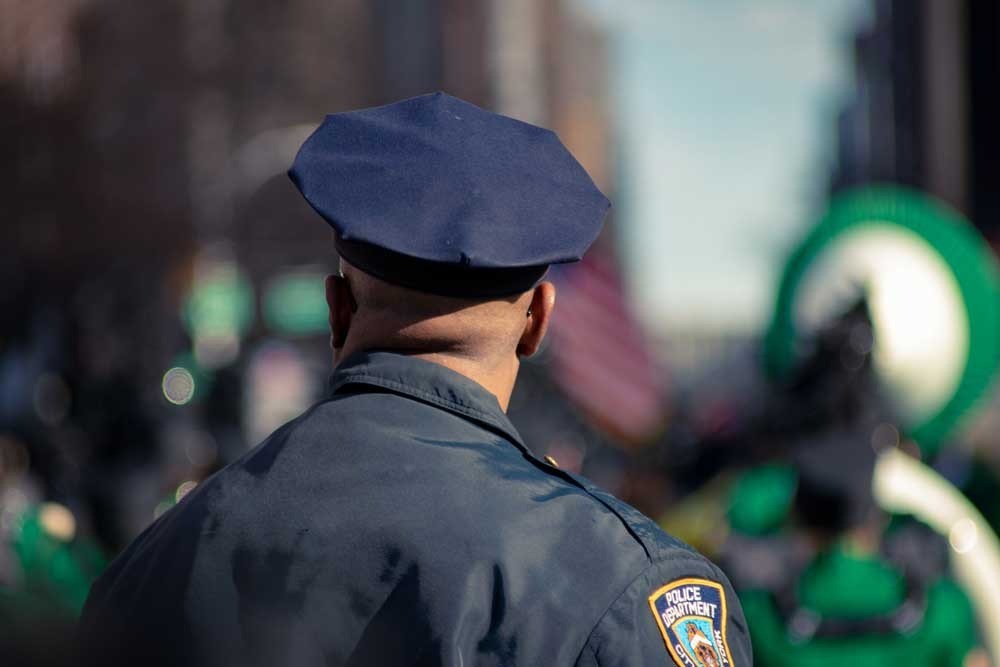Like many slang terms, pinpointing the precise origin of nicknames for law enforcement officers is a bit of a mystery. You might have heard people refer to police as “cops” or “5-0,” but have you ever wondered where these terms come from? While some theories sound plausible, the real stories behind these monikers are often more intriguing. Let’s dive into the history and explore the popular theories, and the more accurate origins, of why police are called “cops” and the story behind the “5-0” nickname, along with other colorful terms used to describe law enforcement.
Debunking Common Myths About “Cops”
Before we get to the real story, let’s address a couple of popular, but incorrect, theories about the origin of “cops”:
Constable on Patrol? Not Quite.
One theory suggests that “cop” is simply an abbreviation for “Constable on Patrol.” While it’s a clever thought, this explanation is unlikely. Our language rarely forms words from acronyms in this way. Plus, “constable” isn’t a widely used term for a police officer in the United States, making this origin story even less probable.
Copper Buttons and Badges? A Shiny But False Lead.
Another theory links “cop” to “copper,” suggesting that police were nicknamed this because of the shiny copper buttons and badges on their uniforms. While this is a fun image, there’s not much evidence to back it up. Copper wasn’t a standard material for police uniforms. It’s more likely that this story emerged later as a way to explain the already existing nickname “copper.”
Alt text: A uniformed police officer stands outdoors, facing slightly to the right, with a serious expression, in front of a blurred background of trees and a building.
The Real Origin of “Cop”: To Seize and Arrest
The truth behind the nickname “cop” is actually rooted in the verb “cop,” meaning “to take or seize.” This meaning is the key to understanding why we call police “cops.”
Around 1844, “cop” began to be used as slang for “to arrest.” This usage quickly caught on. As “being copped” became synonymous with being arrested, the word naturally extended to refer to the person doing the arresting – the “copp-er.” By 1846, people were casually calling police officers “coppers.” Interestingly, by 1859, “copper” was shortened back to “cop,” the very word we started with, and it has remained a common term for law enforcement ever since.
“5-0” Fame: From Hawaiian TV to Mainstream Slang
Now, let’s tackle “5-0.” Why are cops called 5-0? This nickname gained widespread popularity thanks to the television show Hawaii Five-O, which captivated audiences from 1968 to 1980. In the show, “Five-O” was the designation for the Hawaiian police force. This was based on Hawaii being the 50th state to join the United States.
While factually inaccurate – real Hawaiian police officers don’t have this designation – the nickname resonated with viewers. “5-0” became a catchy and cool way to refer to the police, spreading from fans of the show into general slang across the country. Even today, decades after the show’s original run, “5-0” remains a recognizable nickname for the police.
Other Popular Nicknames for Police: “The Fuzz,” “The Heat,” and More
Beyond “cops” and “5-0,” law enforcement officers have accumulated a variety of other nicknames over time. Let’s explore some of the more common ones:
The Fuzz
The origin of “the fuzz” is less clear-cut, but it gained traction during the 1960s and 70s. Several theories exist:
- Radio Static: “Fuzz” might mimic the sound of static from police radios.
- British Hats: It could be a nod to British police officers, who are known for wearing somewhat fuzzy hats.
- Police Academy Haircuts: Another possibility is the short, fuzzy haircuts often given to new police academy graduates.
- Abbreviation of “The Force”: It might even be a quirky abbreviation of “the police force.”
The Heat
“The heat” is another nickname with an unclear origin. Possible explanations include:
- Flashing Red Lights: It could refer to the red flashing lights on police cars.
- Interrogation Pressure: “Heat” might symbolize the metaphorical “heat” or pressure police apply when interrogating suspects.
- Slang for Guns: “Heat” is also a slang term for guns in the US, potentially linking to the fact that police officers are armed.
Boys in Blue
“Boys in blue” is a more straightforward nickname, stemming from the traditional navy blue color of classic police uniforms. Although uniform colors have diversified over the years, the association with “blue” has persisted.
Alt text: A close-up of a police officer’s uniform sleeve showing a patch with an American flag and the word “POLICE” embroidered above it.
Nicknames from the Past: Gumshoe, Smokey, and The Man
While some nicknames fade with time, history has given us a collection of older, less common monikers for police:
-
Gumshoe: This term was often used for detectives who rely on stealth and observation to solve crimes. In the 19th century, gum rubber became popular for the soles of soft shoes. These quiet shoes allowed wearers to “sneak around” easily, hence the nickname for stealthy detectives.
-
Smokey: While “Smokey” is widely recognized as Smokey Bear, the mascot for wildfire prevention, it was also once a nickname for law enforcement officers. This came about because police uniform hats sometimes resembled the hat worn by Smokey Bear. The movie “Smokey and the Bandit” (1977) further popularized this slang term.
-
The Man: “The Man” emerged from the counter-culture movements of the 1960s and 70s as a general term for any authority figure, especially government-related ones. While not exclusively for police, “the man” encompassed anyone in a position of power over the public, including law enforcement.
Global Police Nicknames: Bobbies, Mounties, and Pikachu
Police nicknames aren’t unique to the United States. Around the world, law enforcement has earned some interesting monikers:
-
Bobbies (UK): In the UK, police are often called “bobbies.” This nickname honors Sir Robert Peel, who founded the London police force in 1829. They were quickly nicknamed “bobbies” after Peel’s own nickname, “Bob.” You might also hear them referred to as “peelers” for the same reason!
-
Mounties (Canada): The Royal Canadian Mounted Police, famous for their officers patrolling on horseback, are widely known as “mounties.” Even though horseback patrols are less common now, the nickname has stuck.
-
Pikachu (Vietnam): In Vietnam, traffic police have yellow uniforms, leading people to jokingly nickname them “Pikachu,” after the popular yellow Pokémon character.
Conclusion: A Colorful Lexicon for Law Enforcement
From “cops” rooted in the act of arresting, to “5-0” inspired by a popular TV show, and a host of other creative nicknames, the language we use to describe police is rich and varied. These terms reflect not only the role of law enforcement in society but also popular culture and historical influences. Whether you call them cops, 5-0, or something else entirely, these nicknames are a testament to the enduring presence of police in our collective consciousness.


